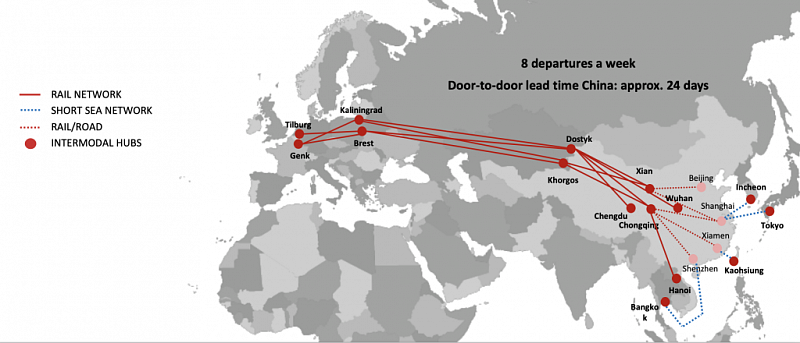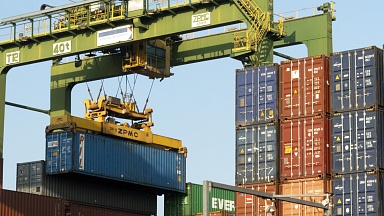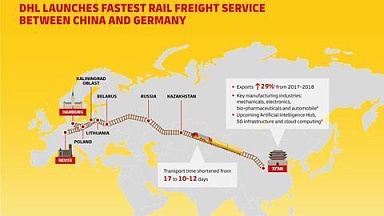However, as freight rates have drastically risen since the Covid-19 outbreak, the market seems less sensitive to the subsidies. For example, New Silk Way Logistics (NSWL) says, «the phase-out of Chinese subsidies on the New Silk Road can be an opportunity for us». What makes this possible?
Cold Chain on Rail
«One of the major changes I can picture for the future without subsidies is that the structure of goods will be reshaped, with low-value products being weeded out due to high rates and products with added value taking over the market. The transportation of the latter is just what New Silk Way Logistics is expert at,» says operations manager NSWL Dennis van de Moosdijk.
His statement is not to be overdone. New Silk Way Logistics is a specialist in cold chain transport on the New Silk Road. The company transports an average of 25-30 temperature-controlled containers per week from Europe to China and vice versa by rail, carrying goods such as chemical products, medical supplies and fresh food. «There is a growing demand for these products in the Chinese market, and we are already providing excellent door-to-door services.»
In addition to the regular reefer containers, New Silk Way Logistics has also launched a new reefer container, which equips Thermo King’s new A500 engine guaranteeing a stable temperature in all positions inside the container. Besides, the type of reefer container dedicated for the New Silk Way Logistics is facilitated with a large 900-litre fuel tank, which avoids the trouble of refuelling on the way. «The emerging China-Europe train services are not mature enough in general. All kinds of cargo, no matter if it fits or not, can get on board on rail, but this won’t be the norm. Being aware of this, we insist on investing in cold chain equipment as we see the market is ready for that,» explains Van de Moosdijk.
Imbalance of Westbound and Eastbound
«Another predictable consequence is that the imbalance of eastbound and westbound traffic of general cargo will be intensified. Now even with subsidies and differential pricing, there is a shortage of eastbound cargo, so you can imagine what will happen when the subsidies are not there anymore.» continues Van de Moosdijk.
New Silk Way Logistics (NSWL) has maintained the balance of cargo volumes within the company for a long term. The company uses its own reefer equipment to operate round-trips from the initial stage of its cold chain services. «If, as forecasted, the absence of subsidies hits the cold chain industry, NSWL will show its competitiveness compared to those who only provide one-way services. NSWL will be able to gain a more favourable environment to develop and more extensive market space,» states Van de Moosdijk.
Established in 2016 as a joint venture of KLG Europe and H.Essers, New Silk Way Logistics started to take a unique approach to promote eastbound trains from the very beginning. After several years of development, the destinations of its regular transport services have extended from Chongqing to other important logistics hubs such as Yiwu, Xi’an, Shenyang, Wuhan, Shenzhen, Hefei and Chengdu. «We have established a high reputation in the Chinese and European markets, and our customers trust our capabilities and quality,» says Van de Moosdijk. «Keeping the balance between west-bound and east-bound traffic is our highest priority. We are booking our own equipment as round trips on the several rail connections.»




